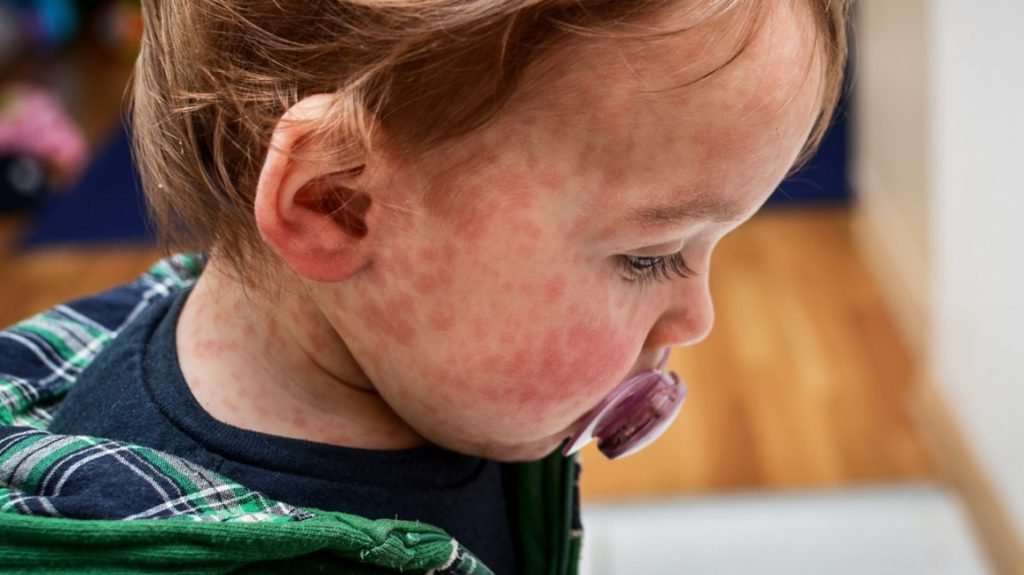
Nội dung bài viết / Table of Contents
This post is also available in: Tiếng Việt (Vietnamese)

An allergy occurs when you make contact with one of your allergens by either inhaling it, swallowing it or touching it. Your body reacts by producing IgE, an antibody, which holds onto the allergen. After that, histamine and other chemicals are released into your blood, causing allergic symptoms.
This health condition is extremely common. It can affect patients at any age. It can be managed by reducing your risk factors. Please discuss with your doctor for further information.
The symptoms you get mostly depend on how you are exposed to the allergen. Symptoms of nasal or skin allergy include itchy and watery eyes, sneezing, rashes, hives, and fatigue.
Food allergies can also be identified by stomach cramps, vomiting, and diarrhea. An allergy caused by an insect sting will show redness, swelling and pain at the affected site. Allergic symptoms range from mild to severe.
The most serious reaction is referred to as anaphylaxis, which can badly affect your whole body. Signs of anaphylaxis are hives and itching all over your body, a tight throat, breathing difficulties and tingling in your hands, feet, lips and scalp. More seriously, you may die. If you experience anaphylaxis, it is the best to seek medical care immediately.
There may be some symptoms not listed above. If you have any concerns about a symptom, please consult your doctor.
If you have any signs or symptoms listed above or have any questions, please consult with your doctor. Everyone’s body acts differently. It is always best to discuss with your doctor what is best for your situation
Sometimes, your immune system can freak out over completely harmless things such as pollen, certain food, mold or animal dander. That kind of reaction is called an allergy and the harmless things triggering them are allergens.
There are many risk factors for allergies, such as:
The information provided is not a substitute for any medical advice. ALWAYS consult with your doctor for more information.
Anyone can get allergy, at any time. For your health’s sake, it is important to learn your allergens so that you can avoid them in advance. There are allergy tests that can help you identify your triggers such as skin testing, iGe tests and elimination tests. You can visit an allergy specialist to have a full diagnosis. In case you have experienced severe anaphylaxis, your doctor can give you a prescription for an EpiPen, which contains epinephrine. When you are exposed to a possible allergen, injected yourself with it in order to prevent serious allergic reactions.
Allergies are something you cannot remove. The key to making peace with them are avoiding your triggers. Based on your triggers and unogoal, try to allergy-proof your living environment. If your children have any allergy, you need to let their teachers and their friends know about it so that your children can get faster treatment in case an allergic attack occurs.
Read more post:
The following lifestyles and home remedies might help you cope with health condition:
If you have any questions, please consult with your doctor to better understand the best solution for you.
Sources: